In 2005, the Africana Research Center and the Department of African and American Studies created the Nelson Mandela Lecture Series to recognize and introduce the Penn State community to the scholarship of an African human rights activist. The ARC named the lecture after Nelson Mandela, not only because he changed the sociopolitical structure of South Africa, but because he challenged the world to have a conscience in addressing human rights.
Upcoming Speaker Spotlight
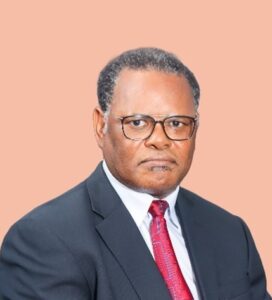 This year the ARC is honored to be hosting Dr. Sipho Seepe.
This year the ARC is honored to be hosting Dr. Sipho Seepe.
Professor Seepe is a higher education specialist and strategy consultant. Until recently, he served as the Deputy Vice-Chancellor: Institutional Support at the University of Zululand. Trained as a physicist, Professor Seepe holds two master’s degrees: one in Physics from the University of the Witwatersrand (Wits) and another in Technology in Education from Harvard University, Cambridge, Massachusetts. He also earned a Ph.D. from the University of Northwest. Professor Seepe is the recipient of several prestigious scholarships, including the Harvard Fellowship and the Senior Research Fulbright Fellowship. Before returning to academia, he served as a Special Advisor in various ministries, including Public Service and Administration, Human Settlement, Communications, and Defense and Military Veterans. He has written extensively on matters of public interest, contributing significantly to academic and public discourse.
This year’s lecture will be held in W043A Dewey Room, Patee Library on November 7th 2024 at 6:00pm.
Past Speakers
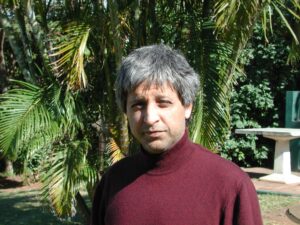
Adam Habib is an academic, researcher, activist, administrator, and well-known public intellectual. A Professor of Political Science, Habib has over 30 years of academic, research and administration expertise, spanning five universities and multiple local and international institutions.
Prior to his appointment as Director of SOAS, he was Vice-Chancellor and Principal of the University of the Witwatersrand (Wits) in Johannesburg, South Africa between 2013 and 2020. He has also served as Deputy Vice-Chancellor of Research at the University of Johannesburg, Executive Director of Democracy & Governance at the Human Science Research Council and director of the Centre for Civil Society and Professor of Development at the University of KwaZulu-Natal. He is widely published, among which are his two well received monographs, South Africa’s Suspended Revolution: Hopes and Prospects and Rebel & Rage: Reflecting on #FeesMustFall.
Habib’s academic contributions resulted in his election to the American Academy of Arts and Sciences, in addition to serving as a fellow of both the African Academy of Science and the Academy of Science of South Africa. He also serves on the Council of the United Nations University.
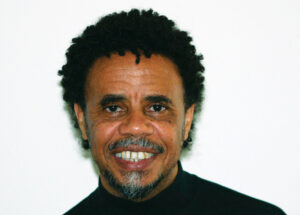
“As an African, I ask myself—Design, is it worth it. Does this profession, which one has chosen make any sense?
I fled racism and subjugation from a previous regime in Zimbabwe, (then called Rhodesia) in the early 1970s, finally ending up in London, where I studied graphic design. Over the years and despite many obstacles—mainly repression, I have tried to enable compelling visual expression for social change by using alluring images and ideas to cut through complacency and apathy, while trying to raise consciousness about an array of civic and political issues from discrimination and human rights, to health and the environment.
I remind myself that every day offers us the chance to refuse. This gives me the impetus to address the social and ecological blemishes that bring only misery and despair to humankind. Everyone deserves the right to live with dignity while embracing andnourishing the potential we all possess.
In my work I challenge the norm and try to capture truth, nature, and the vibrancy of our humanity through eloquence, power, and economy. I translate its essence through aesthetic expression in order to wholly connect to the spiritual and intellectual body, which is life itself.
Creating an alternate vision in a pervadingly regressive body politic has never been easy, but design is my weapon and therein lies the challenge I have called ‘Creative Defiance.’This lecture is a glimpse of my story and approach to the breadth of real problems and values we all have to deal with.”
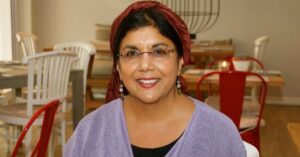
In 1980, when Zubeida Jaffer was 22 years-old and working as a journalist in Cape Town, she received a message from Nelson Mandela. He urged her to keep writing, saying her stories in the morning paper were giving many prisoners hope. He had also become aware that she had been detained and tortured six months after she started her first job and was faced with considerable adversity. She met him the day after his release ten years later in 1990 and was fortunate to meet with him on several occasions over the years.
She will share parts of her life story in order to illustrate the challenges her country has faced and currently faces to secure the greater peace that Nelson Mandela and many others have worked for. Healing three centuries of trauma is certainly not a task for the faint-hearted. She will provide some insights into the kinds of choices that many of her compatriots have had to make in an increasingly uncertain world context that appears threatening.
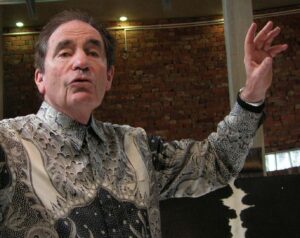
As a young law student, Albie Sachs would visit the office of Mandela and Tambo, the only black firm of attorneys in apartheid South Africa. Within a decade, Mandela was to lead resistance in South Africa and on his capture be sentenced to life imprisonment. Meanwhile, Tambo was sent abroad to organise international opposition to apartheid. Albie Sachs will describe working with Tambo in exile preparing for a new non-racial democratic Constitution, being blown up by a bomb placed in his car by South African security agents; then when Mandela was released, working with Mandela on the drafting of the Constitution and ultimately being appointed by Mandela to be a Justice on South Africa’s top Court.”
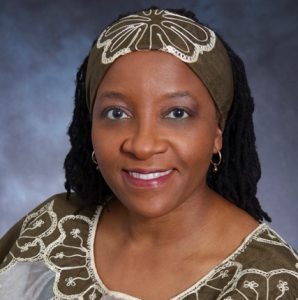
Whether in personal life or in the larger society, we have wounds that block our ability to be the wonderful gifts that we are meant to be in the world. We too have inflicted wounds unto others, but all these wounds can be healed. However, it takes courage and the willingness to speak and hear the truth. That first step to healing is so often the hardest. We are afraid to speak our truth for fear of judgment, rejection and anger. We are also afraid to hear truths that might question our images of ourselves. Yet the pain is only the first step, what comes after that is healing and wholeness. Using South Africa’s Truth and Reconciliation Commission as a starting place and model, in this presentation Tutu talks about how we can heal and be healed as individuals and a society.
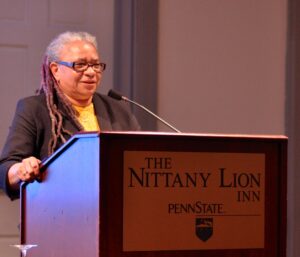
Feminist thought and activism are intrinsically part of the history and fabric of the South African liberation struggle. In this lecture I make the connection between women as actual and metaphorical prisoners during and after the demise of apartheid. I then address particular moments of feminist euphoria shortly after the first democratic election in 1994 and I reflect on how women’s and feminist advances have stealthily been eroded as the democracy matured. I illuminate the paradoxes of silences versus hypervisibility of women and raise the challenges and possibilities for revitalising feminist intellectual activism.
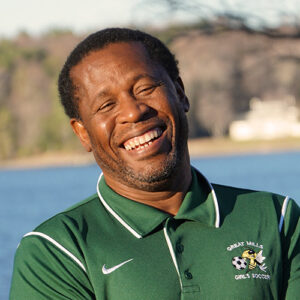
Nelson Mandela’s death has triggered global outpouring of grief and memorials, a testament to his role in the struggle against apartheid. As a scholar of death, bereavement, and grief in South Africa, and as a former speech writer of Nelson Mandela, my lecture will speak to the intersection of these dual roles. As a scholar, I will explore how the language of liberation in the 1960s and the 1990s was deeply influenced by the specificities of time and place. As a Mandela speech writer, I will detail how living in the moment, the speech writers struggled to craft the language that would give momentum to the struggle to defeat apartheid.
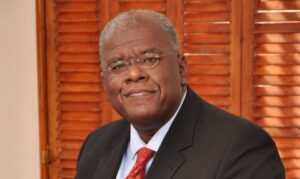
I will draw on the myths, mysteries and meanings drawn from the life of Nelson Mandela, from both personal experiences as well as the voluminous writings on his life, to extract what I believe to be critical messages for transforming higher education everywhere. I will especially share what I learnt from Madiba in my own leadership experiences as the first black president of a white university trapped in a horrific crisis of racism in 2009, and how the life and lessons offered by the former politician, prisoner, president and pensioner transformed this institution into an award-winning example of how to change in ways that meet the twin objectives of reconciliation and social justice beyond the narrow legal/criminal approach.
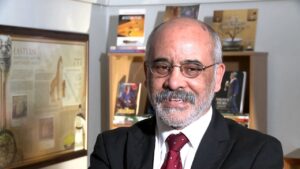
Eighteen of the 27 years that Nelson Mandela spent in prison were on Robben Island (June 1964 to April 1982). Most narratives of this period correctly focus on the hardship through which Mr. Mandela and his fellow-prisoners went. In these narratives one sees the lengths to which the apartheid government goes to break the liberation movement, to isolate its leaders and to break their spirit. One also sees, by way of response, the extraordinary largeness of spirit of the prisoners, their capacity to hold on to a sense of their dignity and their creativeness in attempting to construct lives for themselves on the Island. In this talk I emphasize how significantly intellectual this creative dimension of prison life was and how it contributes to alternative imaginings of a future South Africa. I show how, from the moment the Commissioner of Prisons on a visit to the Island makes the mistake of asking Nelson Mandela in the presence of the other prisoners the question: “‘Now what is it you want about things like studies, what is it you want?’, and hearing Mandela’s reply: ‘You should let the atmosphere of a university prevail here on the Island,'” the prison evolves into a space of intense, often uncomfortable, but generative learning. In this space prisoners explore, in ways and on a scale that had not taken place in the country before, or possibly even since, the limits of their identities as South Africans. I show how, through the process of formal study and the informal flowering of seminars, debates and engagements that take place, Mr. Mandela and his fellow prisoners work through, often with great personal difficulty, the questions of their individual and collective pasts, their subjectivities and begin to delineate alternative visions of what a new South Africa could look like. This ‘working through’ for Mandela, I attempt to show, involved difficult questions around race, nation and the political economy of South Africa.
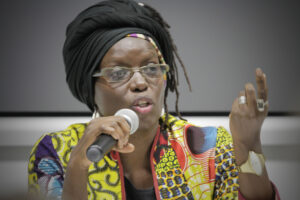
Nelson Mandela has often repeated the old maxim: “Where you stand depends on where you sit.” This simple but poignant statement attests to the fact that the views and attitudes that people hold regarding sexuality, the powers that they wield in the name of culture, morality and religion and the control they exercise over the sexuality of others, all have a direct bearing on their social and political standing. Indeed, as the last bastion of gender inequality and exclusion, sexuality has become a metaphor for dictatorship in Africa and elsewhere. Against the backdrop of a critical surfacing of some of the key issues affecting the issue of sexuality, my lecture seeks to offer some reflections on the manner in which governance questions in Africa today are intricately related to sexuality. In particular the intensive scrutiny, regulation and control of non-conforming sexualities and gender identities reflect both a deep historical connection to colonial structures of governance and marginalization, and to more contemporary attempts to control the body. In this way, sexuality is deployed as a tool for perpetuating patriarchy, inequality, injustice and the process of othering.
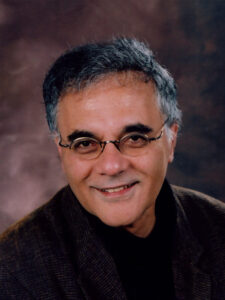
Mahmood Mamdani discussed two paradigms of human rights. One claimed to generalize the lessons of the Holocaust and the other needs to draw lessons from the end of apartheid, two great crimes against humanity. We identified the first with Nuremberg, the other with CODESA (Convention for a Democratic South Africa). Each of these paradigms has an implication for how we think of human wrongs and thus human rights. I suggest three ways of distinguishing between how we think of the Holocaust and apartheid.
Whereas Nuremberg has been the explicit basis for the articulation of a post-Holocaust notion of human rights, I argued that the lessons of CODESA have yet to be fully theorized. Whereas Nuremberg shaped a notion of justice as criminal justice, CODESA calls on us to think of justice primarily as political justice. Whereas Nuremberg has become the basis of a notion of victims’ justice – as a complement rather than a contrast to victors’ justice – CODESA provides the basis for an alternative notion of justice, which I call survivors’ justice.
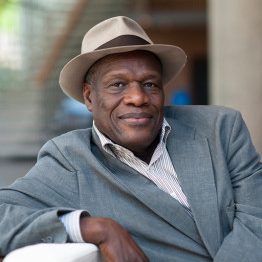
Professor Diawara is the Director of New York University’s Institute of Afro-American Affairs and is a professor of Comparative Literature and Film. A native of Mali, Professor Diawara received his education in France and later traveled to the United States for his university studies. He earned his Ph.D. from Indiana University in 1985. His dissertation on the politics and aesthetics of African cinema formed the basis of his 1992 work, African Cinema: Politics and Culture.
Diawara’s research has focused in the field of black cultural studies, though it differs from the traditional approach to black cultural studies that was formulated in Britain in the early 1980s by figures such as Stuart Hall and Paul Gilroy. He complicates the British approach by considering material conditions of African-Americans to provide a broader context to study African diasporic culture.
Diawara has broadened the growing discourse of Black film, particularly in his thinking around questions of Black spectatorship in relation to traditional Hollywood spatial paradigms. His essays on contemporary Black film have contributed to the expanding body of work on Black film. Professor Diawara collaborated with Ngûgî wa Thiong’o in making the documentary Sembene Ousmane: The Making of the African Cinema, and he directed the German-produced documentary Rouch in Reverse.
Prior to teaching at New York University, Diawara taught at the University of California at Santa Barbara and the University of Pennsylvania. He is the author of We Won’t Budge: An African Exhile in the World (2003), Black-American Cinema: Aesthetics and Spectatorship (1993), and In Search of Africa (1998).
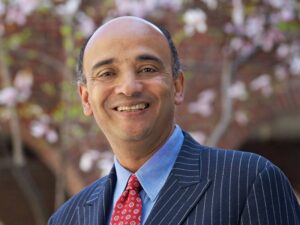
Kwame Anthony Appiah was born in London (where his Ghanaian father was a law student) but moved as an infant to Ghana, where he grew up. He was educated at Cambridge University in England, where he took both B.A. and Ph.D. degrees in philosophy. His dissertation explored the foundations of probabilistic semantics; once revised, these arguments were published by Cambridge University Press as “Assertion and Conditionals.” Out of that first monograph grew a second book, “For Truth in Semantics,” which dealt with Michael Dummett’s defenses of semantic anti-realism. Since Cambridge, he has taught at Yale, Cornell, Duke, and Harvard universities and lectured at many other institutions in the United States, Germany, Ghana and South Africa, as well as at the école des Hautes Études en Sciences Sociales in Paris, and he is now a member of the Princeton University faculty, where he is a Laurance S. Rockefeller University Professor of Philosophy and the Center for Human Values.
Appiah has also published widely in African and African-American literary and cultural studies. In 1992, Oxford University Press published “In My Father’s House,” which deals, in part, with the role of African and African-American intellectuals in shaping contemporary African cultural life. His current interests range over African and African-American intellectual history and literary studies, ethics and philosophy of mind and language; and he has also taught regularly about African traditional religions. But his major current work has to do with the philosophical foundations of liberalism.
In 1996, Appiah published “Color Conscious: The Political Morality of Race” with Amy Gutmann; in 1997 the “Dictionary of Global Culture,” co‑edited with Henry Louis Gates Jr. Along with Gates he has also edited the Encarta Africana CD-ROM encyclopedia, published by Microsoft, which became the Perseus Africana encyclopedia in book form. In 2003, he coauthored “Bu Me Bé: Proverbs of the Akan” (of which his mother is the major author), an annotated edition of 7,500 proverbs in Twi, the language of Asante. He is also the author of three novels, of which the first, “Avenging Angel,” was largely set at Clare College, Cambridge. In 2004, Oxford University Press published his introduction to contemporary philosophy entitled “Thinking It Through.” In January 2005, Princeton University Press published “The Ethics of Identity” and in 2006, Norton published “Cosmopolitanism: Ethics in a World of Strangers.”
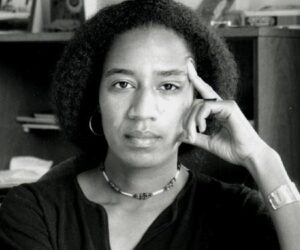
Myriam J. A. Chancy, Ph. D., is a Haitian-Canadian writer born in Port-au-Prince, Haiti (Ph. D., Iowa). Her first novel, Spirit of Haiti (London : Mango Publications, 2003), was a finalist in the Best First Book Category, Canada/Caribbean region, of the Commonwealth Prize 2004. She is also the author of two books of literary criticism, Framing Silence : Revolutionary Novels by Haitian Women (Rutgers UP, 1997) and Searching for Safe Spaces : Afro-Caribbean Women Writers in Exile (Temple UP, 1997) as well as a second novel, The Scorpion’s Claw (Peepal Tree Press, 2005). Searching for Safe Spaces was awarded an Outstanding Academic Book Award 1998 by Choice, the journal of the American Library Association while her work as the Editor-in-Chief of the Ford funded academic/arts journal,Meridians : feminism, race, transnationalism (2002-2004) was recognized with the Phoenix Award for Editorial Achievement by the CLEJ (2004). Her third academic book, From Sugar to Revolution: Women’s Visions of Haiti, Cuba and the Dominican Republic is forthcoming from Wilfred Laurier UP and her third novel, The Loneliness of Angels (Peepal Tree Press) will be released February 2010. She is currently at work on a book length academic work entitled, Floating Islands: Racial Identity Formation in a Transnational Age, as well as a young adult novel focusing on repressed Haiti-Louisiana ties, entitled The Escape Artist.
Dr. Chancy is Professor of English at the University of Cincinnati where she teaches courses in African Diaspora Studies, Caribbean Lit, Postcolonial Literature & Theory, Feminist Theory & Women’s Studies, and Creative Writing (Fiction). She currently sits on the editorial advisory board of PMLA, the journal of the Modern Language Association.
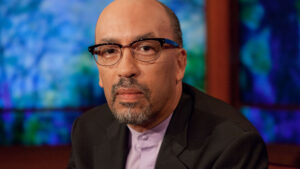
Bill Fletcher, Jr., is the Belle Zeller Visiting Professor at Brooklyn College-City University of New York. From January 2002 through April 2006 he served as the President and chief executive officer of TransAfrica Forum, a national non-profit organization organizing, educating and advocating for policies in favor of the peoples of Africa, the Caribbean and Latin America.
Bill was formerly the Vice President for International Trade Union Development Programs for the George Meany Center of the AFL-CIO. At the Meany Center, he worked with foreign labor centers, aiding them in matters of education and organizational change, as well as working to construct stronger ties between respective educational institutions. Additionally, he worked domestically to develop union movement capacity in its relation to organizational change/development. This latter work included supervising and coordinating Meany Center efforts to provide direct technical assistance to labor organizations as well as providing education and training to practitioners seeking to develop expertise in union transformation efforts.
Prior to his position at the George Meany Center, Bill served as Education Director and later Assistant to the President of the AFL-CIO. Bill’s union staff experience also included the Service Employees International Union, where his last position was Assistant to the President for the East and South. He served as the Organizational Secretary/Administrative Director for the National Postal Mail Handlers Union. Prior to the Mail Handler’s Union, Bill was an organizer for District 65-United Auto Workers in Boston, Massachusetts.
Bill got his start in the labor movement as a rank & file member of the Industrial Union of Marine and Shipbuilding Workers of America. Combining labor and community work, he was also involved in ongoing efforts to desegregate the Boston building trades.
Bill is a graduate of Harvard University and has authored numerous articles published in a variety of newspapers and magazines. He is also the co-author of the pictorial booklet: The Indispensable Ally: Black Workers and the Formation of the Congress of Industrial Organizations, 1934-1941.
While in Boston, Bill served as an adjunct faculty member with the Labor Studies Program of the University of Massachusetts-Boston.
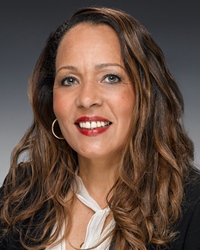
Charlotte McClain-Nhlapo is trained as a human rights lawyer. She obtained a Master of International Law at the University of Warsaw in Poland, and thereafter studied for an LLM at Cornell Law School in New York.
In August 1999, she was appointed by the President of South Africa Nelson Mandela to the South African Human Rights Commission. She was subsequently reappointed in October 2002. At the Commission she focuses on socio-economic rights, disability rights and child rights. In addition to the thematic areas she is responsible for two provinces Mpumalanga and Limpopo.
She currently is on a leave of absence from the South African Human Rights Commission and for the last year has been at the World Bank where she is the disability advisor to the East Asia and the Pacific region and the South Asia region.
Over the years she has worked primarily in the area of human rights, with a particular interest in marginalized groups, children, women and people with disabilities. Before joining the Commission she was a Project Officer on Child Protection for UNICEF (United Nations Children’s Fund). She helped draft provincial policy for street children and convened a task team to establish a national register for sexual offenders against children. She was appointed by the former Minister of Justice Dullah Omar as a member of the South African Law Commission Project Committee on sexual offences by and against children. In 1996, she was Legal Advisor to the Disability Desk in the Office of the Deputy President Thabo Mbeki, where she worked on the Integrated National Disability Strategy. Previous to that she was a senior researcher for the Community Law Centre at the University of the Western Cape in the child rights unit.
She has served as an expert on child rights, the right to food and the rights of people with disabilities issues to various UN agencies. She also represented the National Human Rights Institutions at the UN during the process of developing a Convention for People with Disabilities. She serves on a number of community boards and was until recently chair of the board of RAPCAN (Resources Aimed at the Prevention of Child Abuse and Neglect).
She is currently the deputy Chairperson of the Council of the University of South Africa (UNISA). Ms McClain-Nhlapo has written widely on human rights issues and is committed to social justice.

Mahmood Mamdani, a native of Kampala, Uganda, received his Ph.D. in Government from Harvard University.
He is currently Herbert Lehman Professor of Government in the Department of Anthropology and Political Science and the School of International and Public Affairs at Columbia University, where he was also director of the Institute of African Studies from 1999 to 2004. He has taught at the University of Dar-es-Salaam (1973-79), Makerere University (1980-93), and University of Cape Town (1996-99) and was the founding director of Centre for Basic Research in Kampala, Uganda (1987-96).
He is the author of Good Muslim, Bad Muslim: America, the Cold War and the Origins of Terror (Pantheon, 2004), When Victims Become Killers: Colonialism, Nativism and Genocide in Rwanda (Princeton, 2001) and Citizen and Subject: Contemporary Africa and the Legacy of Late Colonialism (Princeton, 1996) and ten other books. Citizen and Subject was recognized as “one of Africa’s 100 best books of the 20th century” in Cape Town in 2003 and was also awarded the Herskovitz Prize of the African Studies Association of USA for “the best book on Africa published in the English language in 1996.”
Mahmood Mamdani was President of CODESRIA (Council for the Development of Social Research in Africa) from 1999 to 2002. In 2001, he was invited to present one of nine papers at the Nobel Peace Prize Centennial Symposium in Oslo. In 2004, he presented one of nine papers at the African Union-organized Global Meeting of Intellectuals from Africa and the African Diaspora in Dakar.